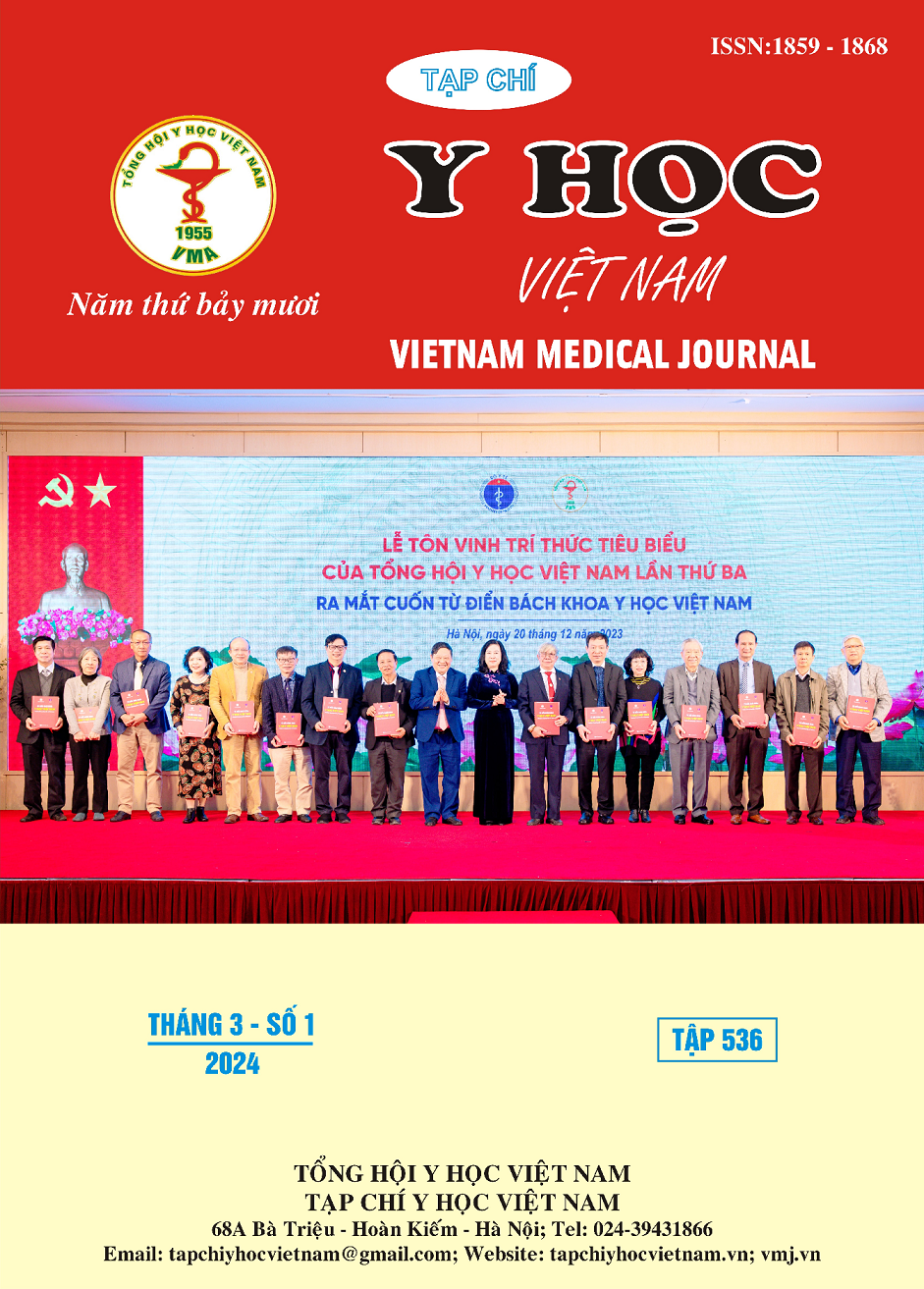ASSESSMENT OF SPINAL CORD NEURAL RECOVERY AFTER SURGERY FOR UPPER THORACIC SPINE INJURY AT VIET DUHOSPITAL
Main Article Content
Abstract
Spinal cord injuries can result in partial or complete loss of motor and sensory functions below the level of injury. For thoracic spinal cord injuries, surgery is commonly performed to decompress and stabilize the spine to facilitate neural recovery¹. Results: The study indicates that complete spinal cord injury post high thoracic spine surgery accounts for the highest proportion at 60.4%, while incomplete spinal cord injuries account for 27.1%. Postoperative improvements were observed with a reduction in the rate of autonomic dysfunction from 72.9% down to 54.2%. Conclusion: Decompression and stabilization surgery of the high thoracic spine yield significant neural function recovery in patients with incomplete spinal cord injury but are less effective in those with complete spinal cord injury.
Article Details
References
2. Lê Hoàng Nhã. Điều Trị Gãy Cột Sống Ngực Do Chấn Thương Bằng Phẫu Thuật Nẹp Vít Cuống Cung.
3. Nguyễn Quang Huy. Đánh Giá Kết Quả Điều Trị Phẫu Thuật Chấn Thương Cột Sống Ngực Bằng Phương Pháp Bắt Vít qua Cuông Tại Bệnh Viện Việt Đức.
4. Nguyễn Văn Thạch. Nghiên cứu điều trị phẫu thuật gãy cột sống ngực – thắt lưng không vững, không liệt và liệt tủy không hoàn toàn bằng dụng cụ Moss Miami. HVQY. 2007;25(3).
5. Fontijne WP, de Klerk LW, Braakman R, et al. CT scan prediction of neurological deficit in thoracolumbar burst fractures. J Bone Joint Surg Br. 1992;74(5):683-685. doi:10.1302/0301-620X. 74B5.1527112


